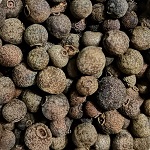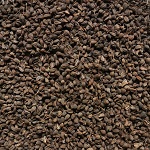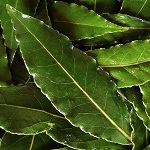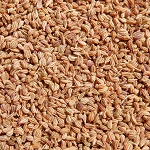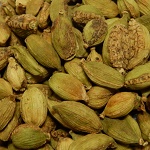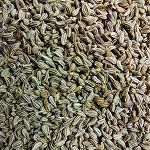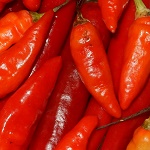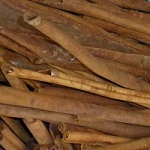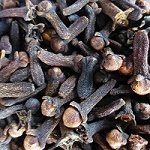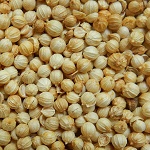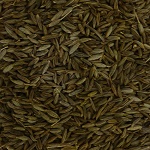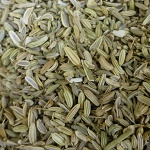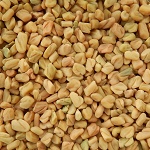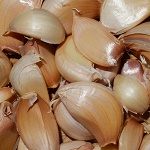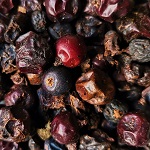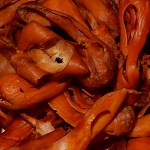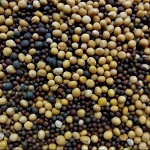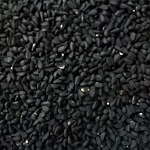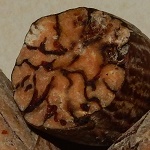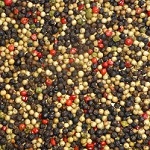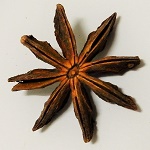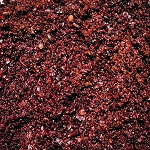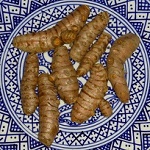Sichuan PepperSpicyCitrusFloral
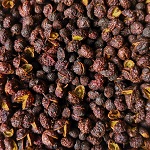
Sichuan Pepper Spicy Citrus Floral
Sanshools, the main group of compounds in Sichuan pepper produce a numbing, tingling sensation in the mouth. The citrus and floral flavors of the berry are produced by several flavor compounds, which can be used to make combinations with different spices. Regional variants of Sichuan pepper can have different dominating flavors.

 Red Sichuan peppercorns are not related to the common peppercorn but are the berries from the Prickly-ash tree. The seeds are removed from the berries and only the husk of the berry is used. The Chinese have used this medicinal and culinary spice for centuries. It is an essential ingredient for the Chinese 5 spice mix and Sichuan Pepper is the Má in the Mala sauce. (Málà translates as ‘numbing and spicy’, chili pepper adding the Là). The numbing effect that you experience in your mouth when eating the Sichuan pepper is caused by a group of compounds called sanshools. These sanshools act on nerves in the mouth and lips causing a tingling and numbing sensation.
Red Sichuan peppercorns are not related to the common peppercorn but are the berries from the Prickly-ash tree. The seeds are removed from the berries and only the husk of the berry is used. The Chinese have used this medicinal and culinary spice for centuries. It is an essential ingredient for the Chinese 5 spice mix and Sichuan Pepper is the Má in the Mala sauce. (Málà translates as ‘numbing and spicy’, chili pepper adding the Là). The numbing effect that you experience in your mouth when eating the Sichuan pepper is caused by a group of compounds called sanshools. These sanshools act on nerves in the mouth and lips causing a tingling and numbing sensation.
In Traditional Chinese Medicine the Sichuan pepper is used to help with the blood circulation, digestion, expel colds, and in the treatment of toothaches, arthritis, and other inflammatory pains. The Prickly-ash tree is also known as the ´Toothache tree’. The sanshools in the Sichuan pepper increase the pain threshold by interfering with the pain receptors in the mouth. This also works when the Sichuan peppers are applied directly onto the skin.
The sanshool compounds in the Sichuan pepper also work as an antioxidant in the body. The antioxidant levels in your body are vital to protect the body against oxidative stress. Reactive Oxygen Species (ROS are an unstable molecule containing oxygen that can easily react with other tissue causing structural damage to proteins, DNA, or RNA. They are considered the main cause of oxidative stress in the body. The Sichuan pepper suppresses oxidative stress through several pathways, offering protection against neurodegenerative diseases like Alzheimer’s and Parkinson’s disease.
Obesity, high cholesterol, high blood sugars are all risk factors for cardiovascular diseases, and the Sichuan pepper has a positive effect on all of them, thus decreasing the risk for cardiovascular diseases. Together with the inhibition of oxidative stress, which also protects against high cholesterol levels, the Sichuan pepper has potential as a lipid-lowering drug without side effects like the commonly prescribed medications for high cholesterol.
Below are some of the benefits of Sichuan pepper summed up.
- Sichuan pepper is anti-inflammatory.
- Sichuan pepper is analgesic (relieves pain).
- Sichuan pepper protects brain function.
- Sichuan pepper is a powerful antioxidant.
- Sichuan pepper is anti-bacterial.
- Sichuan pepper decreases the risk for cardiovascular diseases.
- Sichuan pepper is a source of vitamin A and several B vitamins.
- Sichuan pepper is a source of potassium, iron, copper, selenium, zinc, and manganese.
Physiological basis of tingling paresthesia evoked by hydroxy-α-Sanshool.
https://www.ncbi.nlm.nih.gov/pmc/articles/PMC2852189/
A ´toothache tree´ alkylamide inhibits Aσ mechanonociceptors to alleviate mechanical pain.
https://www.ncbi.nlm.nih.gov/pmc/articles/PMC3717230/
Hydroxy-α-sanshool possesses protective potentials on H2O2-stimulated PC12 cells by suppression of oxidative stress-induced apoptosis through regulation of PI3K/Akt signal pathway.
https://www.ncbi.nlm.nih.gov/pmc/articles/PMC7368233/
Antiobesity, regulation of lipid metabolism, and attenuation of liver oxidative stress effects of Hydroxy-α-sanshool isolated from Zanthoxylum bungeanum on high-fat diet-induced hyperlipidemic rats.


